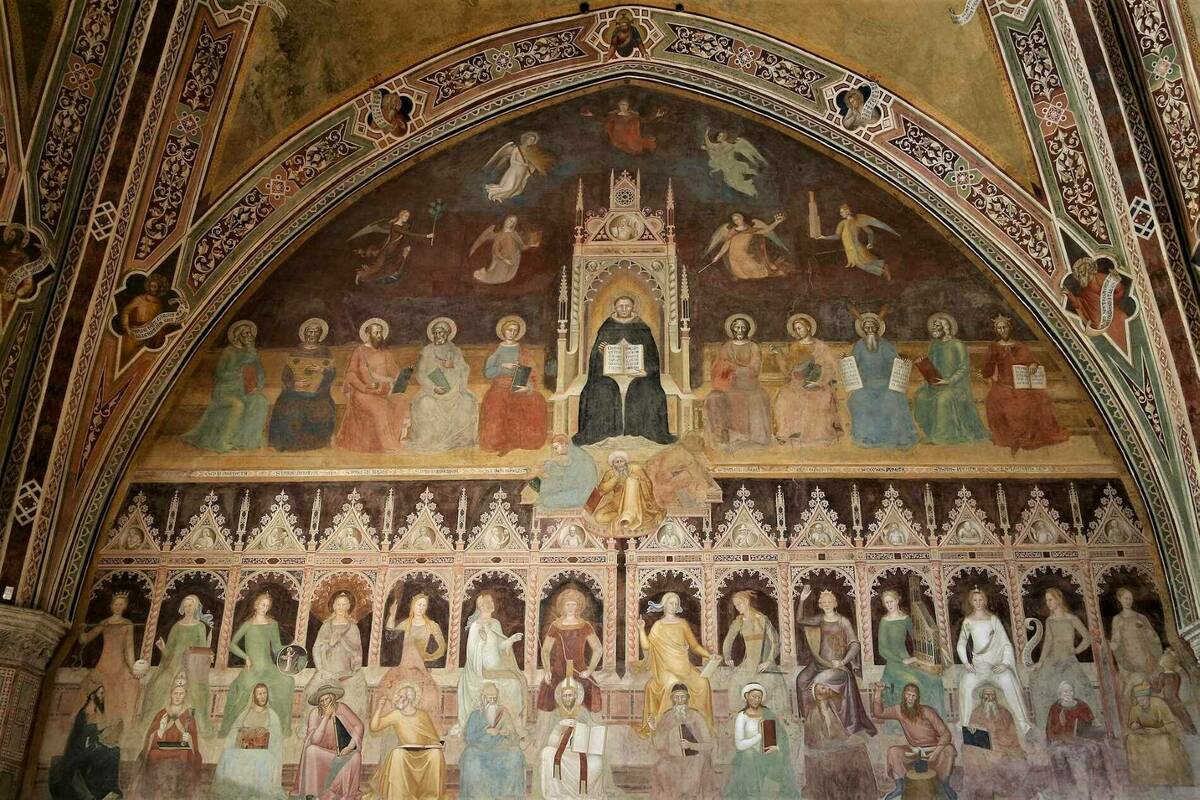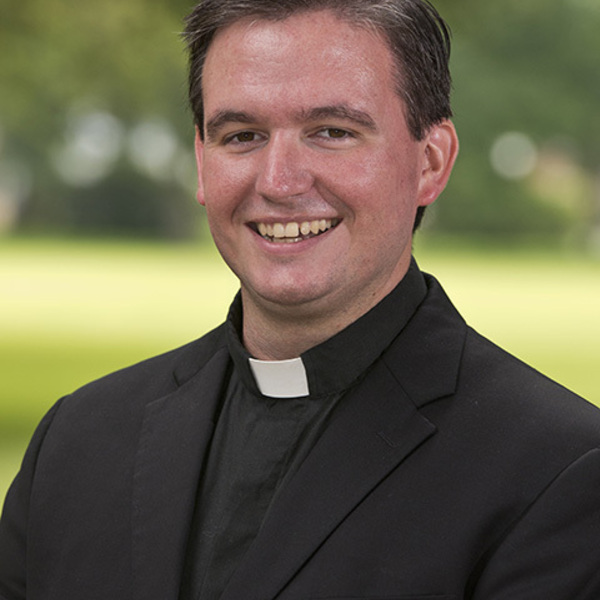Thus the first service to politics rendered by the Christian faith is that it liberates man from the irrationality of political myths, which are the real threat of our time. Taking a stand for sobriety, which does what is possible and does not cry with an ardent heart after the impossible, is of course difficult; the voice of reason is not as loud as the cry of unreason.[1]
The threat of political myths strikes one as a strange topic for the 21st century. But when political debate so often alights upon Pontius Pilate’s question to Jesus, we are left to wonder what is being offered instead of truth. And, as with Pilate, we might wonder how often the question is posed with an uneasy mix of irony and self-searching.
Myth offers a justification for action on the basis of unreason. In this view, myths are propaganda. The most philosophically serious myths are those of Plato: often derivative of ancient Greek myths, they are subtly retooled (and thus criticized) to lead their audience to a morally serious life. On a reading of Plato one may refer to as “Straussian” (and Strauss is never better than when he treats Plato), myth is a substitute for philosophy: it offers for those not (yet) open to the enticements of wisdom inducements to respect the philosopher and to love the lower rungs of the ladder of love as praiseworthy.
The example of Plato is at once profound and useless: profound insofar as it shows the limits of myth in its interaction with reason understood broadly, and useless insofar as the philosopher will never attain the political influence the young Plato might have hoped to before his run-in with Dionysius of Syracuse.
But lesser lights than Plato have shown that myth need not be rational or coherent to be persuasive. Carl Schmitt, for example, describes as “myth” the achievement of Erik Peterson’s criticism against him. That the criticism had rationally failed, Schmitt argued, did not preclude it being successful. We can read into this critique an envy that Peterson’s myth-making enjoyed greater currency than Schmitt’s own odes to violence and terror. But then Schmitt is also wrong that the mythical status of Peterson’s argument amounts to an indictment of its irrational character.
Somewhere between Plato and Schmitt, and in more ways than one, sits Thomas Aquinas. It is hard to imagine a “neglected work” by Aquinas, but in fact his De Regno has failed to garner the attention it merits. And if there is something providential in its rediscovery now, perhaps it is in the ways the text opens up a vista on political myths that even now beset us.
The Virtue of Vice
A central conclusion of De Regno manages to be deeply banal: politics is hard. To take an amusing example: Aquinas counsels the king on what kind of land and in what kind of climate to found a new city. After all, if one were to found a city, would fundamental questions of geography and climate not be of capital importance?
Indeed, the bulk of De Regno is given over to such prosaic matters, centered on the question of the reward for the king. What is the just reward for good political rule? It turns out to be not some extrinsic reward, e.g., glory or riches, but the king sharing in the common good he cultivates and stewards with and for his subjects. Even when Aquinas turns to the fraught question of Church and State, he underlines not so much the king’s subordination to the Church as the importance of the king simply doing his job. Throughout the text, Aquinas urges the king to keep his nose clean and his head down. That politics is hard might seem obvious, until one considers the myths we trade in when we speak of politics:
If only we were in charge and not other persons, things would get done around here. If only they could see the wisdom of our way, then the crisis would be over. If only this institution had power and not another one, our regime could be healthy. If only I could take power, I could claim riches and power. If only I could wrap myself in the robes of [religion, progress, nostalgia], I could legitimize my rule.
These are common assumptions discernible in both Aquinas’s counsel in De Regno and the practice of 21st century politics. In different ways, such myths demonstrate a surprising naivete, amounting to fairy tales seeking to avoid the hard work of politics. The focus is on gaining a clear and distinct claim on power, not exercising it well. Indeed, the success of the exercise of power seems to be a foregone conclusion of attaining it. But the myths offer no incentives to admit that political rule is difficult, or that failure must sometimes be blamed not on one’s enemies, but on one’s own shortcomings. To always blame another for one’s shortcomings is a common spiritual disease of the tyrant.
Long before the “masters of suspicion,” political life has encouraged an assumption that one’s political failing must be attributable to one’s enemies. And yet such myth-making obscures the real trials of political life. How much of our focus on polarization, for instance, is a desire to blame someone else for how hard politics is even under the best of circumstances?
Here it is notable that Aquinas offers a lesson in tyranny to the king. Many princes, Aquinas argues, fall into tyranny. Indeed, the choice is often between mild and “excessive” tyranny. Many peoples are thus motivated to avoid monarchy to avoid tyranny, although Aquinas argues that any regime form can (eventually) slide into injustice. The title tyrannus is a horrible one, redolent of corruption, decadence and vice. One would certainly not wish to accuse a royal reader of tyranny. And yet tyranny is the great vice of the monarch, after all. What is the solution to this problem? Aquinas offers a few.
The thrust of Aquinas’s argument throughout De Regno, however, is that politics is hard work, and that there are no shortcuts. Similarly, there are no shortcuts out of tyranny. Stubbornly refusing to believe cheap political myths is a way to avoid tyranny in the first place and that myths cannot get us out of a bad spot, only the hard work of politics that seek justice for the sake of the common good.
That is why Aquinas argues that the tyrant can shore up his position by becoming more just. If a kingship is destroyed by becoming more tyrannical, a tyranny is preserved by becoming more kingly, i.e., more just. To recall the lines of Pope Benedict above: “taking a stand for sobriety, which does what is possible and does not cry with an ardent heart after the impossible.”
This sobriety is not attractive, because it means hard work. But for Aquinas, a society has to be able to name that politics is challenging and noble. He challenges us, in other words, to build a political culture in which it is not a sign of weakness to advert to the difficulty of politics, where indeed those difficulties and their remedies can be the center of attention rather than the enmities. This is what I tongue-in-check call “the virtue of vice”: a sign of a healthy political culture is the ability to name its own weaknesses and limitations.
Uncivil Religion
Political myth is not the answer to healthy politics. But its allure is real. And for Christians, one of the most tempting myths is Aquinas would consider an oxymoron: Christian civil religion.
Aquinas offers a history of civil religions in De Regno whereby he establishes what distinguishes Christianity from much that comes before it: Christianity sets the end of the human person as beyond nature, attainable only through grace. In earlier dispensations, e.g., ancient Rome, religion contributed fittingly to earthly goods. But Christianity has altered this landscape forever, purifying the spiritual from the temporal.
But vigilance against the political instrumentalization of Christianity remains important. The achievement of Christianity, this elevation of the spiritual over and apart from the temporal, always remains partial in fact. Aquinas knew this first-hand of his own time. It is perhaps for this reason that he offers as an example Gaul, which he cites valued religion most highly. Of course, the French kings were innovators in interfering with the internal affairs of the Church.
As Robert Kraynak explains well in Christian Faith and Modern Democracy, political regimes often need the legitimacy of the Church more than the Church needs that of political regimes. Although, members of the Church then and now still get that backwards. Political authority is good because it helps to secure basic goods of human life. But no regime can substitute for the Kingdom of God. And so, just as political regimes should not try to wrap themselves in the legitimacy of religion, so ecclesial leaders should take care not to confuse the good of a country with the good of their church—for that country is passing.
A Pedagogy for Politics
Much of De Regno has a negative task: sweeping away false hopes and consolations of a technology of politics that renders effortless the hard work of governance. Precisely because politics is difficult, the struggle to get it right never ends. I adduce five principles for politics from Aquinas’s De Regno. They are each breathtakingly simple, almost austere:
- Gelasianism (dualism, primacy)
- Thomistic political naturalism
- a critique of civil religion and theocracy
- ambivalence to particular regimes
- Pedagogy/humility
Gelasianism means that there are two powers (Church and State) and that the Church takes precedence over the State: dualism and the primacy of the spiritual. Aquinas’s critique of civil religion and theocracy is a thorough rejection of reducing either power to the other. Thomistic political naturalism means that humans are political by nature, but that revelation also teaches that they have a higher end than politics but are also caught up in sin.
The fourth principle means that there are a variety of legitimate regime forms. Even if Aquinas takes monarchy to be the best, it is not the only acceptable form of government. But even monarchy falls short of the Kingdom of God. Finally, pedagogical humility. Politics is a practical activity, and thus to understand it thoroughly requires some practical experience of doing it. Further, citizens and leaders must practice politics with a growing sense for its telos and its ultimate destiny beyond history.
These are not exciting principles. They do not look good as headlines of political platforms or splashed on billboards or bumper stickers. What they do, however, is to help reveal the most basic impact of the Gospel for political life. And that impact indeed occurs at the most fundamental levels. To quote Pope Francis, there is a “hierarchy of truths.”
Thus, highly elaborate theories about the role of Christianity and politics often miss that Christianity does not typically address itself to the most sophisticated, third-order concerns of politics. It engages politics at the most basic level. Or, perhaps better put, there is a considerable distance between the fundamental truths that Christianity offers to politics and any specific policy proposal offered in the name of Christ. Most Catholic politicians have incentives to ignore this wisdom, because they are running on a particular party’s platform. Did Christ specifically endorse Proposition 14 in this year’s ballot election? Probably not. But it is a convenient myth.
It is not only Catholic politicians, however, who seek to bend the Gospel to their politics. Even some of the most brilliant Christian theorists of politics have fallen into this temptation. Jacques Maritain and John Courtney Murray, SJ are two obvious examples, at least in their less guarded moments, of reconciling Christianity a bit too neatly with prevailing political norms that were already passing as they defended them. But then the counter-revolutionaries of the 19th century who saw in “Throne and Altar” a comprehensive vision for politics were no less quick to marry the Gospel to passing political fads.
A Spiritual Exercise for Politics
The ability to resist such reductions of the Gospel to transient earthly movement must be part of the task of a Christian engaged in politics. But such resistance would be incomplete if it did not seek a synthesis with a desire to leaven the culture with the Gospel message of joy and peace, but also its affirmation of justice and reason and law.
If we can speak of a “spirituality of politics,” the Christian enters into political life with two spiritual dispositions: to live the moral and eschatological tensions of this life, thereby combatting the myths that pretend to overcome them. Humans are finite and mutable, and must always struggle to be who they are even as they lean into who they want to be, who they are called to be.
Pierre Manent has described this as the gap between words and actions introduced by Christianity, although I am not quite sure the gap is entirely original to Christianity. In De Regno, Aquinas reminds the king that politics must be conducted according to its end, with virtue as a guide. This is a moral tension: reason holds politics to standards expressed in terms of the virtues, the common good, and so forth. Even a just regime will fall short of these standards, and this gap has to be acknowledged rather than ignored, addressed in fruitful ways rather than denied.
But the eschatological tension is surely a “gap” original to Christianity. There is an important sense in which the happiness Christianity offers simply cannot be obtained in this life, nor can it be done so through exclusively human ends. But this means that politics is not the summum bonum of the human person, nor is it the full extent of reality. Even a just regime will not replace the Kingdom of God.
For this reason, to return to Pope Benedict, revelation invites reason and no less political reason to a purification: “Right faith orients reason to open itself to the light which comes from God, so that reason, guided by love of the truth, can come to a deeper knowledge of God.”
Aquinas leads his royal reader through such a purification in De Regno. Political reason is humble, not pretending to have all of the answers to problems that plague political life. How can the king pretend to dominate the Church when he can barely manage the task of politics? How can he pretend to be an external bishop, to use Constantine’s arrogant phrase, when he must do all he can simply to avoid being a tyrant?
If the phrase “spirituality of politics” is not that of Aquinas, it nevertheless captures a key dynamic of De Regno: a teaching concerning not only the theoretical framework of politics, but the practical challenge of living this side of paradise. Politics as an architectonic activity has a special temptation to confuse itself with the whole of reality. An authentic political science, never mind a theology of politics, must call it back to an authentic awareness of itself.
This is not what one would expect from the way it is discussed today. “Political theology” triumphs as a certain mode or attitude toward politics. It has been further ideologized into an impatience with anything that does not accord with one’s own recipe for a Christian politics. At its worst, it is an intellectual cover for pride. This characterizes far too much of Christian speculation on and engagement in politics today. But perhaps this should not be surprising: pride is a pervasive feature of human life. Why should politics be any different?
The obvious counterforce to pride is humility. Humility sees better than pride that Christianity challenges political life more than any other “system of thought,” without however pretending to offer magical recipes for political change. Indeed, the Gospel promises a “new heaven and a new earth.
Conclusion: A Christian Task for Politics?
De Regno leaves us with Father James Schall’s recurrent question: is there a Christian (Roman Catholic) political philosophy? Without pretending to capture Schall’s full answer, we can note that De Regno presupposes an argument of the Summa Theologiae. There is much in revelation that reason should in principle know but often in fact does not, and some things that can only be known by revelation. A surprising focus of De Regno concerns the former category. As Aquinas remarks in the very first question of the Summa:
Even as regards those truths about God which human reason could have discovered, it was necessary that man should be taught by a divine revelation; because the truth about God such as reason could discover, would only be known by a few, and that after a long time, and with the admixture of many errors.
Within that category belongs what John Courtney Murray, SJ, describes as the “Christian structure of politics,” an articulation of what has often only been understood vaguely and practiced rarely: politics is not the fullness of reality. There were philosophers like Socrates and Aristotle who had a sense that humans were not the greatest beings, and that there was a good beyond temporal happiness. But such people were few in number, and they certainly did not have a full account of this. Christianity clarifies this.
This is not a call for quietism. If Christians can seem riven between two approaches—unreflective action and reflective inaction—then Aquinas offers a move beyond that impasse. Christianity without a doubt affirms the goodness and nobility of politics. But it also clarifies its limits.
EDITORIAL NOTE: For more on this topic, see: McCormick’s The Christian Structure of Politics available from CUA Press.
[1] “Biblical Aspects of the Theme of Faith and Politics,” 144-5, in Joseph Ratzinger, Church, Ecumenism, & Politics (San Francisco: Ignatius, 2008).


